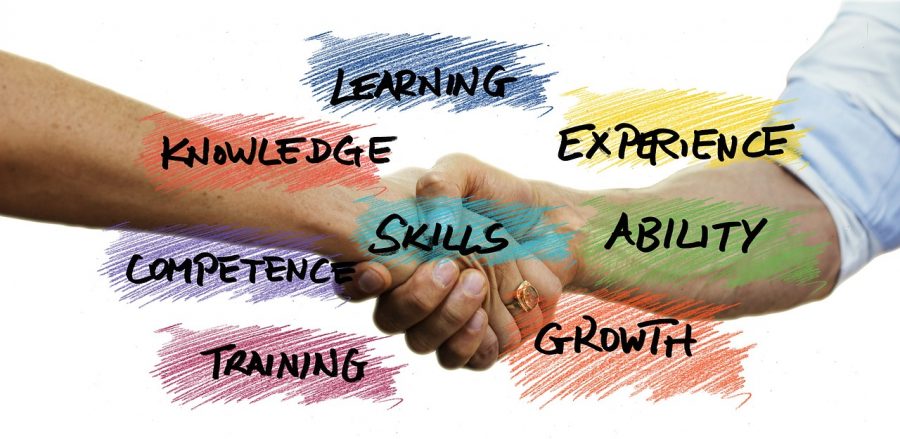
D—, that was the name of one of my most memorable non-traditional students when I taught writing courses in Edmonton, Alberta, Canada.
Straight out of high school, he was recruited by the Western Hockey League (WHL). (MTU’s own Brian Hannon even remembers playing against him a few times.)
After spending 15 years playing professional hockey, D— had returned to university. At 33 (or maybe 34), he was older than I, his teacher, was. When he walked into the classroom, looking damaged and world-weary from years of playing enforcer, I was, admittedly, a bit scared. Would this guy, who looked like he had his nose broken at least a few times, be a good student? Or would he be a total pain?
He struggled a bit, at first, feeling a bit awkward sharing his voice, getting his footing. His writing was initially rusty, but always truthful. But throughout the semester, he became one of the most enthusiastic classroom participants. The deepest readings of the texts were his. And he could spot bad arguments from a mile away. Recalling his time on the ice, he wrote a brilliant essay sympathizing with Frankenstein’s creation, who, too, experienced the pain and scorn of being made to be ugly.
By the end of the semester, his writing and critical thinking skills had improved more than those of anyone in the class. Sadly, that was the last I heard of him until recently, when I found out he became a lawyer.
There were so many others, too. An older student who barely passed the course, but who joined Doctors Without Borders. And G—–, who took my class at the age of 57. After dedicating her life to being a foster parent for troubled kids, she was pursuing a BS and then an MS in Social Work.
Defining Adult Learners
The previous stories exemplify what many of us have known for a long time: that adult learners, rather than having disadvantages, bring many benefits to the undergraduate and graduate classrooms.

Put simply, adult learners are those who take on the responsibility of education later in life than do traditional students. These learners, like those students mentioned above, may have been working all their lives. They may have no previous post-secondary education. Alternatively, they may have completed some university education and are now moving on to advanced degrees.
Adult learners are often referred to as non-traditional students. According to the National Center for Education Statistics, there are several characteristics of adult learners. That is, beyond being older, they may be single parents, have dependents, be working adults, and be financially secure. Or they might combine several of these traits.
Adult Learners Improve the Classroom
Admittedly, there is a plethora of articles on tips for succeeding as a non-traditional student. But there are few on the substantial skills and wisdom that adult learners bring to the classroom.
#1 Increased Experience

It goes without saying that adult students have the benefit of that extra knowledge that comes with age. They may have decades of on-the-job, real-life, management, leadership, communication, and team-work experiences. They may have acquired unique abilities from their previous roles.
These experiences not only help them succeed in their courses, but also enrich and diversify the classroom for everyone.
For instance, a 57-year-old student who remembers the emergence of the Blackberry will have a much more informed perspective on our current (and some would say, troubling, if not addicting) relationship to digital technology.
Adult learners can draw on their rich histories to understand and apply complex ideas; and assume teamwork and leadership roles in the classroom. Those years or even decades of understanding may help them more deeply interpret and apply course materials. For instance, I fondly recall G—– interrupting and offering her foster-parent perspective when a younger student stereotyped a story character as “just another bad, lazy kid who didn’t deserve to be helped.”
Also, some programs, such as Michigan Tech’s Online MBA , the MS in Health Informatics, and our various MS in Engineering programs (Civil, Electrical, and Mechanical) are very well suited to professionals who have been in the workforce for awhile.
#2 Superior Problem-Solving Skills
This breadth of experience, no doubt, comes with encountering more obstacles. That is, adult learners, simply from being on the planet and in the workforce for longer, have most likely encountered several tricky personal and professional problems. Therefore, they may be better at analyzing and troubleshooting issues, as well as generating practical solutions. Or to put it another way, they have made more mistakes, so they know what works and what doesn’t.
For instance, our Vice President of Global Campus and Continuing Education, David Lawrence, has over a decade of collaborating with industry. He is applying his substantial practical knowledge in his dissertation, which is on the challenges and affordances of industry/higher ed partnerships.
#3 Advanced Focus
Adult learners are often more mature and better able to handle the responsibilities of higher education, whether as undergraduates or graduates.
Why? In their various roles, they have most likely developed time management and organizational skills. These skills enable them to focus and to better juggle their academic and personal responsibilities. This focus, when combined with maturity, often makes adult learners better at handling the challenges of college life.
And if they have ever felt exhausted on the job, they may also recognize when they can no longer concentrate and work effectively. That is, they know when to stop studying and to take a break, resulting in a deeper appreciation of the importance of work-life balance.
#4 Crystallized Knowledge
And even if adult learners may sometimes not seem as quick as their younger counterparts, they are just as smart. In fact, a 2017 study in Gerontology discovered that fluid problem-solving ability increases from early adulthood to about the age of 50. But it’s not game over (as this author can attest) at 51. After age 50, adults rely more on crystallized intelligence, which comes from one’s experiences and stored information. CI, which grows throughout life, includes procedural (practical), declarative (factual), general, and specialized knowledge.
Or to put it another way, older adults maintain performance on many cognitive tasks by relying on crystallized knowledge and experience to compensate for declines in fluid abilities and processing speed.
Here’s an example. In one experiment involving a verbal memory task, young and middle-aged adults relied more on fluid abilities whereas older adults relied more on vocabulary (an index of crystallized ability) for optimal performance. It may take adult learners longer to get the answer, but when get it, they will probably be correct.
#5 The Gift of Perseverance
Last but certainly not least, whether you’re an adult thinking about going back to school, don’t worry. Whether 31 or 51, you will bring the gift of perseverance to the classroom.
Yes, pursuing an education when you have other responsibilities is tough. Juggling a career, a family, and coursework is certainly not easy. But adult students often have most of these challenges figured out. They’ve developed strategies for handling stress and for managing time. They’re often laser-focused when pursuing their goals. Lastly, in their education, they have the perseverance, or as we say in the UP, SISU, to succeed.
Adult Learners and Online Programs
When it comes to advanced education, adult learners often gravitate to online courses and programs because of their accessibility and flexibility. Online education, such as that offered by the Michigan Tech Global Campus, enables adult learners to set their own learning goals, identify their needs, and customize their degrees.
In 2020, approximately 33.5 million people in the United States took at least one online course. This number represented a huge increase since 2018. In that same year, online courses accounted for 32.4% of all postsecondary enrollments in the United States. The most popular online programs are business (22%), health (17%), computer science (14%), and engineering (11%). Of those taking online courses, 31% are between 25-44. The average age of online learners is 33 and that number is slowly moving upward.
And why enroll in these programs? Over half of all online students (51%) reported that they had taken online courses to gain new skills, upgrade their careers, and increase their incomes. Furthermore, returning to school, along with giving adult learners a sense of accomplishment and pride, also provides networking opportunities. Adult learners, that is, get the opportunity to connect with peers who share similar interests and goals, improving their personal and professional lives.
And there are other benefits. That is, for many fields, an advanced degree not only gets applicants that job in the first place, but enables them to keep it, especially during economic downturns.
Explore Online Programs at MTU
In other words, when it comes to graduate education, don’t let age hold you back from accessing these benefits. Check out Michigan Tech’s online programs and start your new learning journey.
PS. By the way, the author is speaking from multiple experiences here. From the perspective of a person who has both taught adult learners and earned her PhD post-50, she thinks that (parden the pun) old dogs can definitely learn new tricks!